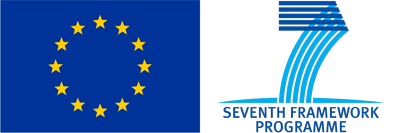Data Managers | Recommendations
1. Assess their position within the open access ecosystem in view of developing collaborative infrastructures and services
Research libraries are encouraged to evaluate their infrastructure and services for research data management and assess how these can serve their designated community in the best possible way. This will allow them to evaluate whether to proceed in developing them further, outsource some of them, or provide shared services (e.g. infrastructures).
2. Develop sustainable business models to ensure long-term service provision
Planning for sources of income should be addressed efficiently and, as much as possible at the outset of service development, while the strategy should be reviewed at regular intervals. Acquiring income may require the diversification of income resources and the layering of the services offered, whereby some services incur charges for the users.
3. Establish mechanisms for data quality that ensure re-use and long-term preservation through collaborative work
To ensure data quality for re-use and long-term preservation data managers have a range of quality assurance and control strategies to use, both manual and automatic. While data managers are expected to take the leading role in close collaboration with research communities (scholarly societies, research institutions and researchers) in establishing citation standards, their collaboration with publishers and journal editors (in essence through editorial policies) is central in ensuring their further enforcement.
4. Acquire certification/accreditation to guarantee high quality services in the long term
Establishing quality assurance mechanisms is important not only for the trustworthiness of research data but of the data centres hosting them. Data centres are thus encouraged to seek appropriate certification and accreditation guaranteeing the quality of their services, such as the Data Seal of Approval and/or other appropriate ISO certification.
5. Support data management through the development of training programmes for researchers and librarians/ technical staff
Libraries should be minimally able to deliver training courses on DMP of general or discipline-specific nature to serve the particular needs of their research communities and librarians as well as more specialized topics like intellectual property rights, licensing, re-use of research data and ethical issues like commercialization, dual use, unintended secondary uses and misappropriation.
The National Oceanographic Data Centre: A National Disciplinary Data Centre and its Services
The NODC is one of the national environmental data centres operated by the National Oceanic and Atmospheric Administration (NOAA) of the US Department of Commerce, which manages the world's largest collection of publicly available oceanographic data. According to its charter, the centre 'serves to acquire, process, preserve, and disseminate oceanographic data'.
Its primary mission is 'to ensure that global oceanographic data sets collected at great cost are maintained in a permanent archive that is easily accessible to the world scientific community and to other researchers'. In fulfilling its mission it collaborates closely with other national and international organizations such as the Global Earth Observation System of Systems (GEOSS), and the International Oceanographic Data and Information Exchange (IODE) dedicated to open access data.
Source: http://www.nodc.noaa.gov/about/overview.html
Data Archiving and Networking Services (DANS)
DANS is an institute of the Royal Netherlands Academy of Arts and Sciences (KNAW), and is also supported by the Netherlands Organization for Scientific Research (NWO). Since its establishment in 2005, DANS has been providing storage of and continuous access to digital research data in the social sciences and humanities.
DANS offers a vast number of services to ensure that access to data keeps improving. These services include, but are not limited to the following: certification of repositories through the provision of the Data Seal of Approval; data management plans; funding of small data projects focusing on describing and making datasets accessible or carrying out feasibility studies; the EASY data archiving and online access to data.
Source: http://www.dans.knaw.nl/en
Funder-Data Centre Partnerships: UKDS and UKDA
A close partnership between a Data Centre and a funding institution can be observed in the case of the UK Data Service. The UKDS was established in 2012 with the support of ESRC to integrate and expand several existing data services into a comprehensive national service structured to support researchers in academia, business, third sector and all levels of government. It is supported by experts in various Universities across the UK.
The ESRC has also provided a long-term commitment of funds for the UK Data Archive (UKDA), which has been central to its success in providing access to research data across for the entire country.
Source: http://ukdataservice.ac.uk and http://ukdataservice.ac.uk
Cost Models for Data Services
DANS charges basic data storage costs, including backup. Storage is supplied by an external party, which guarantees the high level of security and data availability. In return for one-off payment of these costs for five years in advance, DANS ensures conservation of the data 'forever'. This enables long-term preservation of data funded with temporary project subsidies. Formatting data and consultancy is charged.
3TU.Datacentrum provides services at different prices to partners, contracted customers, and customers without a contract. All pay a one-off fixed rate per TB with options for retention periods with Datacentrum partners paying less that the other two. No fee is charged to researchers outside of these three categories for uploads up to 4GB. The Datacentrum has a service level agreement with TU Deltf's Shared Service Center for reliable storage and backup.
Source: http://www.researchdata.nl/fileadmin/content/RDNL_algemeen/Documenten/RDNL_FOBOmodel-UK-web.pdf
The Data Seal of Approval
The DSA is a certification awarded to trusted and sustainable repositories on the basis of fulfilling relevant guidelines provided by the DSA and following review. This provides assurances to patrons regarding the reliability of the services. DSA was developed by DANS and has operated under an international board since 2009.
Source: http://www.datasealofapproval.org
Providing Training and Expertise: The Digital Curation Centre
DCC is a world-leading centre of expertise in digital information curation with a focus on building capacity, capability and skills for research data management across the UK's higher education research community. DSS provides a wide range of resources and guides for developing data management services and has been instrumental in providing training for researchers and data managers in particular in the UK, as well as in the rest of Europe.
Source: http://www.dcc.ac.uk


